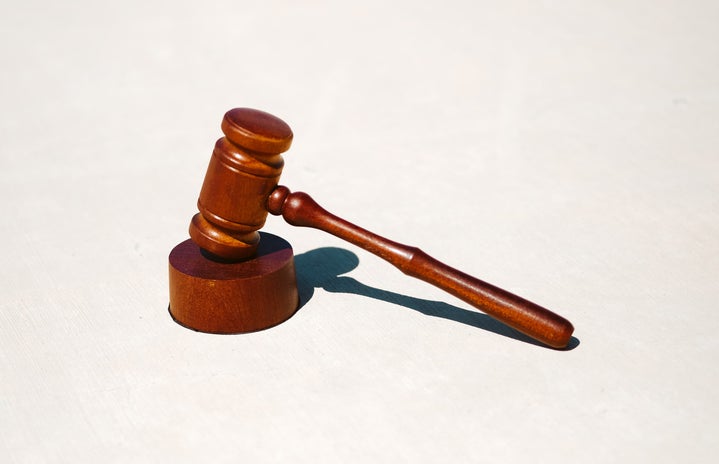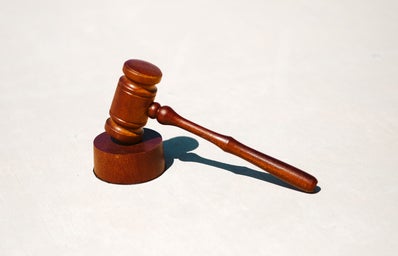***All factual references to the court case were based on this article****
The story about American singer and Empire star Jussie Smollett has been a hugely significant talking point in the media since the story unfolded in January 2019. On the 11th of March this year, Smollett was sentenced to 150 days in jail for allegedly reporting a false hate crime to the police, claiming he had been attacked by people with homophobic and racist motivations.
Many opinions and viewpoints have arisen from this court case – ranging from arguments purporting Smollett’s innocence to questions around how does it reflect on America if Smollett did fake this attack, and, more importantly, what damage it could cause for future victims of hate crimes.
On the 29th of January 2019, police reported that they were investigating a suspected racist and homophobic attack on the Smollett. The actor claimed to have been punched in the face, an unknown chemical substance was said to have been thrown in his face, and a rope was tied around his neck. This alleged attack was coupled with a famous phrase associated with Donald Trump’s administration, “MAGA”.
Smollett received an immense amount of sympathy and outpouring support from fellow Empire stars, comedians, other celebrities and the general public. However, over the course of the early months of 2019, as the case developed, the authenticity of Smollett’s report was heavily questioned, and as more information became available, doubted by many. Following this, on the 20th of February 2019, Smollett was charged by police with disorderly conduct/filing a false police report and an immense backlash ensued.
The backlash that Smollett received, concerning the belief that he had faked a hate crime and made a mockery of a very real experience for many, came from the general public, political figures, the police and even those who had supported him in the beginning.
To this day, Smollett claims he is not guilty, has taken no responsibility, and has not apologised for what he is accused of. What I believe to be the more important discussion is why it is so wrong that, if we believe this to be the case, Smollett did fake his attack. How does it negatively impact real victims and how do we ensure that cases like these don’t discourage victims of hate crimes to speak up, or discourage us from believing them when they do?
The law says “innocent until proven guilty” and many equate this directly to not believing the victim until the perpetrator is proven guilty. However, this may not be the only thought process available or the most empathetic, helpful one. The way the law works requires us not to believe someone guilty until they are convicted which is understandable, but it is so important to believe those who have the confidence, and are brave enough, to come forward with their stories about sensitive and horrific events such as hate crimes, racial abuse, domestic abuse or sexual attacks.
It should be our priority to listen to these stories, be there for the victim and not assume them to be liars and Jussie Smollett’s alleged actions should not affect that precedent. If we start treating those that come forward as victims with deep suspicion and scepticism, because of an extremely small number of cases of this calibre that are falsified, then we ultimately silence real victims of horrific experiences.
This does not equate to asserting people guilty without information, it equates to making the victim our main priority, and making sure they feel heard, listened to, and believed. If they turn out to be part of the very small number of people who have falsified a report, as Smollett is accused, and they are making a mockery of real victims, then they should be reprimanded accordingly – but we should not, therefore, treat all victims with this suspicion. This is especially important in cases like hate crimes or sexually motivated crimes as the victims of these attacks may already feel like they won’t be believed, listened to or cared about.
Another important discussion point in relation to the case of Smollett is to answer in depth the question as to why his specific crime – if truly guilty – is so damaging. Smollett is a black and openly gay man and claimed these were the reasons he was attacked in 2019.
Homophobia and racism are still, sadly, far too prevalent in the US. Unfortunately, this means that Smollett is, as a public figure, likely to have experiences of homophobia in his career and his lifetime overall. This is unbelievably sad and wrong, and it is speculated that this could be part of his motivation for the crime at hand – but what Smollett did according to the court case did not raise awareness for these horrible experiences people go through and almost had the opposite effect.
It made light of a very serious, real problem and is unbelievably disrespectful to those genuine victims. Whatever Smollett was trying to achieve, if anything, this was undoubtedly not the way to do it. However, as I said before, this is bigger than the case of Smollett and instead should create a dialogue about how we treat victims moving forward, not letting a case like this affect our perception of those who come forward as victims of the very real discriminatory issues in America or anywhere else.
We can’t let the mistakes of a very small few affect how we help the many that need it – in hate crime cases, sexual assault cases, domestic violence cases or any other case. For those who are brave enough to still share their story – we’re listening and we believe you.
Words by: Rebekah Thomas
Edited by: Holly Phillips


